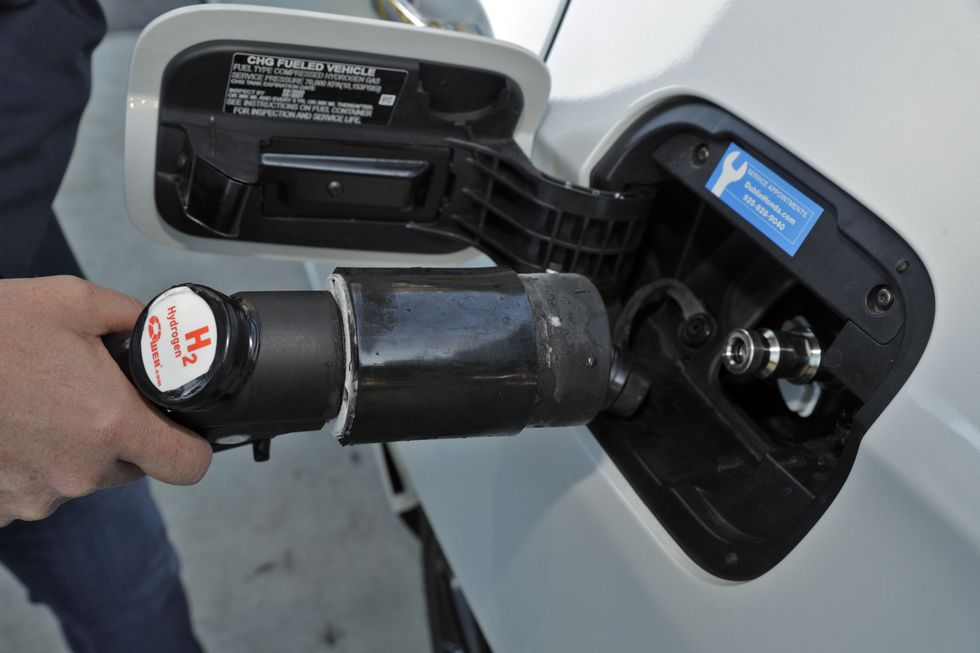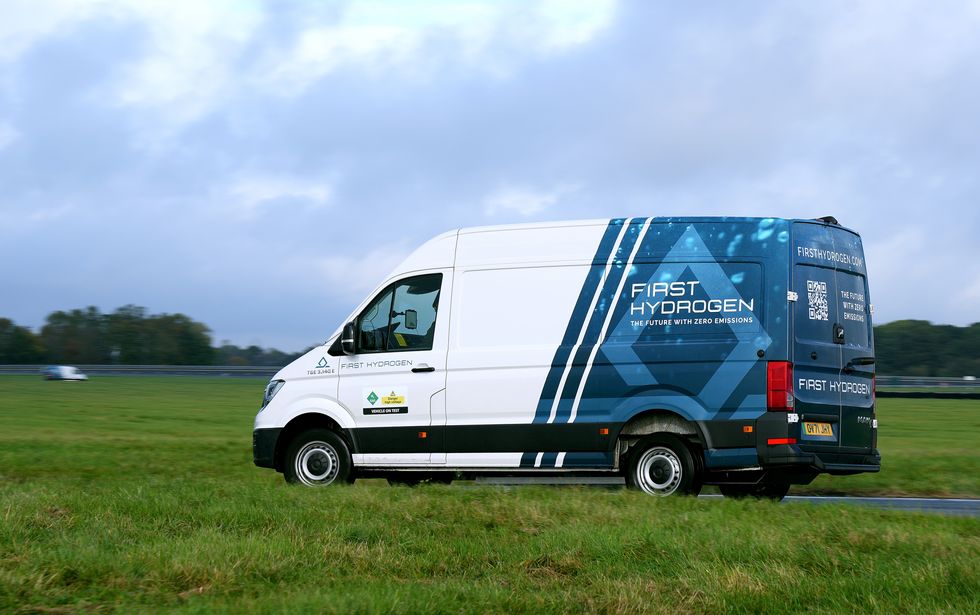Drivers 'starting to take hydrogen seriously' as major trials take place to 'accelerate adoption'
There are eight publicly-accessible refuelling stations across the UK serving around 265 vehicles
Don't Miss
Most Read
Trending on GB News
Experts are supporting the use of hydrogen as a suitable alternative to electric cars while crucial trials take place to assess the use of these vehicles.
Hydrogen vehicles have long been touted as being the next generation of motoring to develop alongside battery electric vehicles to decarbonise transport.
The emerging technology could provide a major lifeline to transport industries that are not suited to electric vehicles, including vans, trucks and heavy goods vehicles.
One expert suggested that individuals and businesses dealing with the issues associated with electric vans could prompt them to invest in hydrogen.
Do you have a story you'd like to share? Get in touch by emailingmotoring@gbnews.uk

The hydrogen vehicle trials will test vehicles that are capable of travelling 400miles
GETTY
Paul Hollick, chair of AFP, said: “Ever since I’ve been involved in the fleet industry, hydrogen has been the ‘five years from now’ solution for zero emissions.
“Historically, it has never been quite ready for adoption and the promise it represents of almost compromise-free travel never quite materialises.
“Now, however, we are seeing a handful of fleet managers – all van operators – start to take hydrogen seriously. That doesn’t mean that the many complications surrounding hydrogen have gone away.”
He highlighted how the clean production of green hydrogen is expensive and there are not enough refuelling stations around the UK.
According to the updated 2023 UK Hydrogen Strategy, there are only eight publicly accessible hydrogen refuelling stations across the country.
While there are four more stations planned, the total fleet of hydrogen cars, vans, buses and HGVs is only around 265 vehicles.
This was identified by Hollick as a serious issue, adding that it was a “very real problem" that needed to be solved if widespread adoption was to take place.
This comes as new trials are set to get underway for a hydrogen vehicle under plans that could see the fuel cell-powered vehicle (FCEV) part of a 1,300-strong vehicle fleet.
First Hydrogen announced that it will begin vehicle trials with gas distribution network Wales and West Utilities (WWU) later this month across Wales and the south west of England.
The vehicles have a clear advantage over larger battery electric vehicles thanks to a 400-mile (630km) range and fast refuelling capabilities.
It is hoped that the hydrogen vehicles will also be able to carry heavier payloads, making them perfect for businesses that rely on transporting goods.
Until the latest measures, First Hydrogen’s trials have always been located near existing hydrogen fuel stations, although this will demonstrate how the company can cope with a lack of infrastructure.
LATEST DEVELOPMENTS:

The First Hydrogen vehicle tests are taking place in Wales and south west England
FIRST HYDROGEN
Steve Gill, CEO Automotive at First Hydrogen, says: “We’re delighted to be working with Wales and West Utilities and, not only trial the vehicles in Wales, but also form partnerships that will establish a local hydrogen ecosystem.
“Particularly for fleets that require longer uptime, better range and heavier payloads than BEVs can offer as well as towing capacity – 75 per cent of Wales and West Utilities’ fleet is equipped to tow yet few BEVs have suitable capability.
“This trial will help us to learn a lot about moveable and depot-based refuelling solutions and how this technology could help bridge gaps in the UK’s refuelling infrastructure network.
“Ultimately, our role in developing a hydrogen ecosystem with partners will strengthen our service offering to fleets and accelerate hydrogen mobility adoption.”









